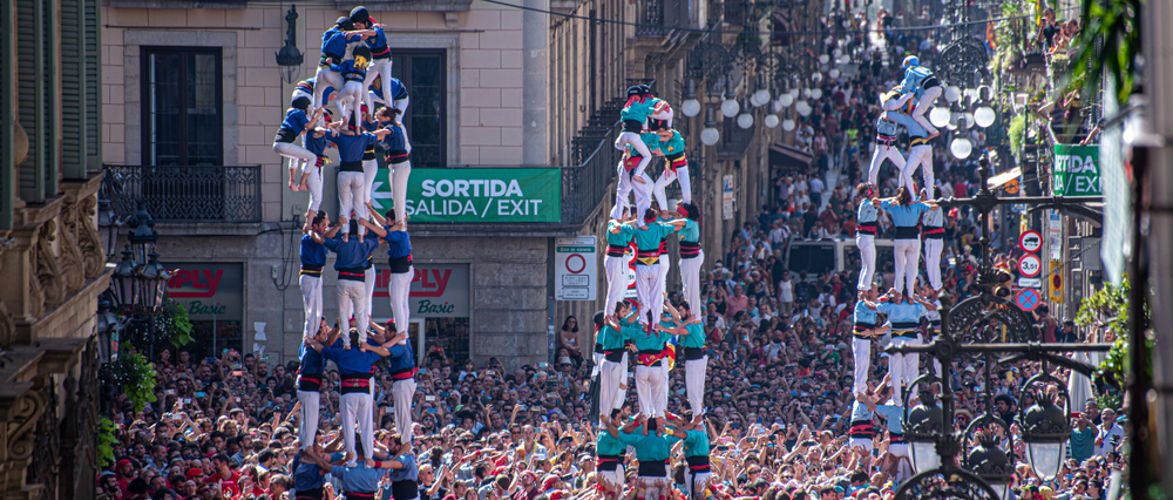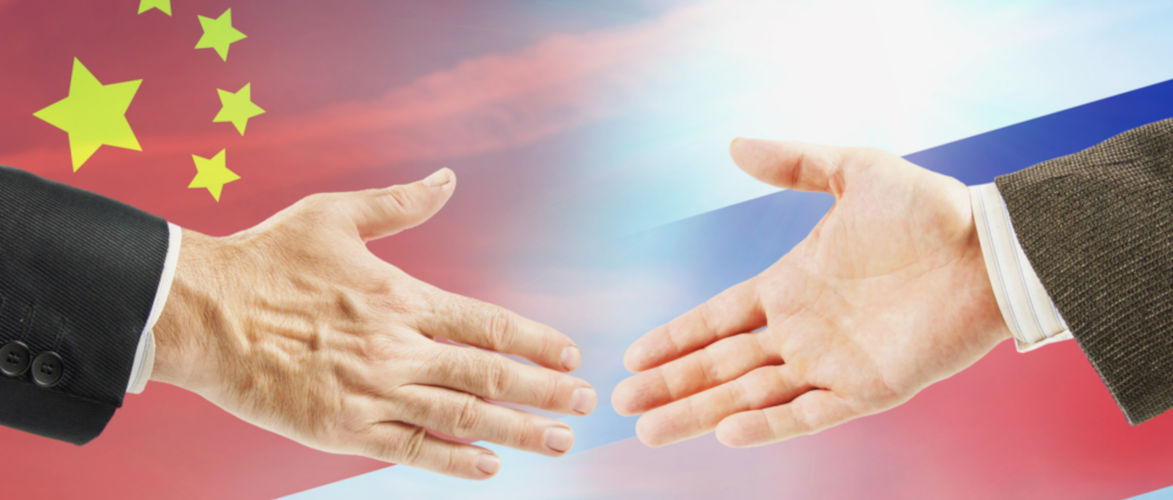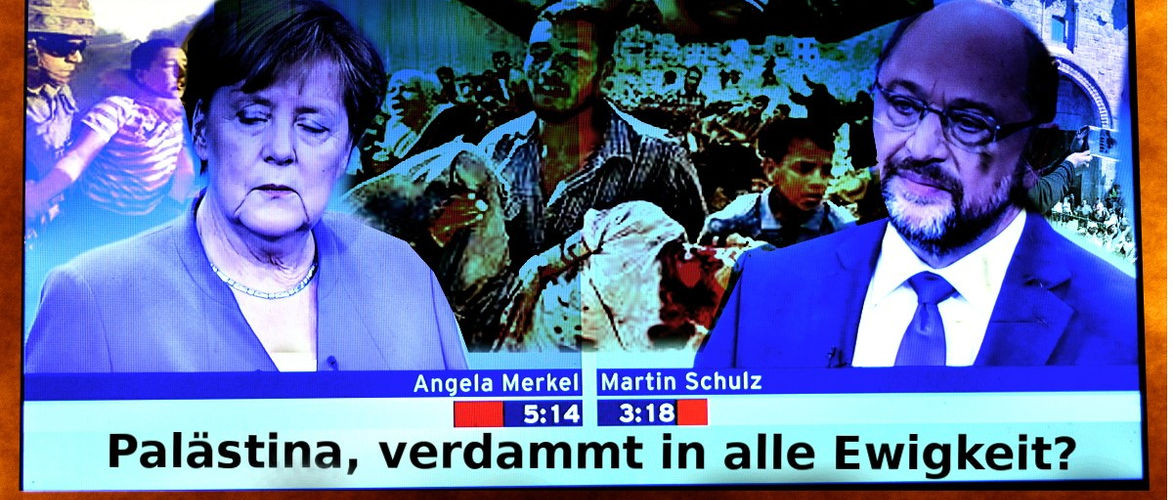A point of view of Pere Grau.
On 26.10.2019 KenFM published an article about the conflict between Catalonia and Spain. This “point of view” has once again reminded me how easy and how often German (and other) journalists who actually mean well fall into the trap that Spanish nationalist propaganda sets for them.
Many foreigners simply cannot understand that most Spanish media that they use as sources are simple mouthpieces of those in power. Their owners and collaborators (or both) always pay homage to the same way of thinking and put the dogma of Spanish unity above all other criteria, no matter how much the truth suffers. And since the Catalans are resolute against this sacred dogma, they are attacked with defamations, distortions of truth and crude insinuations.
I will only comment on a small selection of them below, in the hope that these examples will help to understand how little Spanish reporting on the Catalan conflict can be regarded as serious and how little Spanish democracy can be regarded as exemplary.
Fake 1: false accusations of corruption.
Corruption is a phenomenon that – unfortunately – can be found everywhere. Also in Catalonia. Nobody is trying to sweep this under the carpet. But accusations of corruption have unfortunately all too often been used to discredit Catalan politicians without justification. Examples include former Prime Minister Artur Mas and former mayor of Barcelona Xavier Trias.
Against both, rumours were spread that they had “parked” millions of dollars in Swiss accounts. This cost Xavier Trias his re-election as mayor. However, serious research later proved that these accusations were made out of thin air. Nevertheless, none of the perpetrators has ever apologized for this.
A case of a different nature is that of former Prime Minister Jordi Pujol. Since he was imprisoned, tortured and banished during the Franco dictatorship, his father opened an account in Andorra (to protect the family if something similar should happen again), which should be available to his daughter-in-law and his grandchildren if necessary. On it 10 million pesetas were deposited (which today would correspond to about 60.000 €), which were already taxed. No black money therefore.
The mistake of Jordi Pujol (he himself said “I was a donkey”) was – after the death of his father – not to declare this money and pay inheritance tax for it. The whole process was apparently known to the Spanish authorities for a long time, but only when Pujol joined the independence movement, it became a case of corruption of many millions of euros, to discredit Pujol, unfortunately successfully, among the population. Anyone who knows Pujol knows that he is a man of integrity who has often neglected the family because of his ideals for the construction of the country. He was and is not corrupt. Those who were corrupt, on the other hand, are two of his sons who have already been exposed. The two have long been the subject of judicial proceedings. All this has been deliberately used to deliberately destroy a Catalan icon like Jordi Pujol.
Fake 2: The Catalans hate the Spanish and the Spanish language.
That is, if I may say so, wrong. Apples should not be confused with pears. Apart from some possible cases (the absolute minority), the Catalans do not “hate” the language of so many of their fellow citizens. The Catalans simply want their own language to play the role in their own country that it deserves. Of course, Spanish no longer plays such a dominant role in many fields as it did in the past, although it remains the most spoken language on the streets and in the media. However, Catalan students often have better marks in the Spanish language than in some other parts of Spain. And not to forget: the expressions of hatred of many Spaniards against Catalonia are very numerous and sufficiently documented (1).
Fake 3: Oriol Junqueras (president of the Catalan Republican Left and arbitrarily and illegally sentenced to 13 years in prison) is very often attacked as a racist.
This allegation is embarrassing to laughable. Remarks by Junqueras about genetic similarity or dissimilarity with Spaniards, French or anyone else have nothing to do with racism, since Junqueras never said that other peoples were inferior because of it. One can better understand the sentences of Junqueras, whether one agrees with them or not, if one knows that modern archaeology and historiography has established that contrary to earlier theories the migrations of peoples in the Palaeolithic, but especially in the Bronze Age, proceeded differently than previously assumed. And on the Iberian peninsula, research has found a clear boundary at the Ebro river valley. To the south, the land was populated by peoples who may have come from Africa. North of it (also in today’s Catalonia) the country was populated by people of the Indo-European Hallstatt culture, which could be reflected in the genetic characteristics, to whatever extent.
The standard work on this subject is “Les arrels de Catalunya” (“The Root of Catalonia”) by the archaeologist Miquel Tarradell (Ediciones Vicens Vives, Barcelona 1982), with numerous bibliographical references.
The phenomenon was repeated in the Middle Ages. After the reconquest of the country by the Arab invaders, many often depopulated areas were inhabited by people from today’s Languedoc and Provence, which is still reflected today in the similarity of Catalan and Occitan.
So: Junqueras only pointed out (more or less cleverly) a fact that has nothing to do with racism or contempt of nations.
Another sentence by Junqueras was also deliberately mistransmitted to Spanish readers. It is said, following the defamation strategy, that Junqueras said that all Spaniards were predators and hyenas. However, he used these terms very specifically only for those Spaniards who spread false news about Catalonia and arbitrarily stir up hatred against the Catalans. Just how brain-racking these racist accusations against Junqueras are can be seen from the fact that for four years he was the mayor of his residence Sant Vicenç dels Horts, a small town (approx. 17,000 inhabitants) in the vicinity of Barcelona.
There is a clear majority of Spanish-speaking inhabitants in the town, and Junqueras has won their votes by constantly seeking proximity to the citizens, to ALL citizens, and managing his office so well that he would have been re-elected if he had not moved to the Catalan Parliament in 2015. Among the voices that protested against the racist accusation against Junqueras are in particular the associations of Spanish-speaking citizens of Sant Vicenç dels Horts.
Fake 4: Apples and pears continue to be confused with another nonsensical assertion, namely that “the separatists” are not only demanding Catalonia’s independence, but are also claiming other territories in Spain, France and Italy, which are considered “Catalan countries”.
What is true is that it is not only the Catalans, but also many people in Valencia, the Balearic Islands and Roussillon, who regard themselves as belonging to a Catalan nation, but only culturally, which has nothing to do with state or political claims. The Catalan language has always been a political confederation. And the aim of Catalan cultural policy has been to promote the Catalan language in these areas when necessary.
Politically, however, it is believed that whether Valencia or the Balearic Islands want a different future, this is their own business and the Catalans have nothing to say. Many Valencians and Mallorcans, for example, have repeatedly made it clear that they do not want to exchange Madrid’s paternalism for Barcelona’s paternalism.
So if in the distant future a “Greater Catalonia” should emerge, it should only be because everyone wants it that way and not just a few big-headed Catalans.
Fake 5: After 1977, the Catalan governments were accused of having supported the “separatist press” with subsidies and of having “indoctrinated” the youth extensively through manipulated Catalan television and schools, among other things with myths and falsifications of history.
If this is true, then the constant financial difficulties of the few Catalan newspapers are more than incomprehensible.
Spanish ultra-nationalists who say such things should rather take a close look at themselves on this subject. For nothing other than myths, falsification of history and indoctrination is what the Spanish rulers have been doing for the last 300 years.
What has actually been done is to deny the children the real history of the country, which many Catalan historians of impeccable international reputation have been researching for more than 100 years. These are historians such as Rovira i Virgili, Soldevila, Vicens i Vives and others who have been highly regarded by European scholars.
Fake 6: The separatists established a linguistic dictatorship in Catalonia in favour of Catalan, just as Franco established one in favour of Spanish.
It should be noted that Catalan is still in danger of gradually becoming a residual phenomenon without public funding, with even less significance than Occitan in France or Low German in Germany. This is the result of those periods since 1714 until today in which Catalan has been banned or in any way hindered in its use and development. The period under Franco had been only the last and toughest, but by no means the only one. A few questions to the esteemed readers: is it so reprehensible that in Catalonia restaurants are obliged to offer their menus in Catalan? Does that mean except in Spanish, English, Russian or Japanese because of me? Is it so reprehensible that Catalans want to use their language, which is an indispensable part of their identity, in their dealings with the authorities?
This is often not possible because most Spanish officials who are employed in Catalonia by the Spanish state do not even understand Catalan. And this applies to judges, prosecutors, the police or financial authorities. The Catalan Government has asked on several occasions that the officials assigned to Catalonia, who must have official contact with the citizens, should at least understand Catalan sufficiently.
However, this has been rejected because it would allegedly mean “discrimination”. Could one imagine that in Switzerland there would be civil servants who do not understand German in Zurich, French in Geneva or Italian in Lugano?
One could still fill page after page with it, but I would like to leave it at that. It was important to me to point out that, before writing about the Catalan conflict, one should research thoroughly and be aware of the pitfalls in the Spanish press.
Thank God there are also journalists who are not naive enough to walk into this. One of them once replied to a commendatory comment: “It’s strange to be praised just because you practice your profession properly…”. We would like to see many more rapporteurs of this kind.
Sources:
https://peregraurovira.wordpress.com/2016/07/11/wenn-der-unsinn-alltaegliches-brot-wird/
https://peregraurovira.wordpress.com/2016/07/15/einstein-hatte-recht-und-wie/
Own website about the Catalan conflict: https://peregraurovira.wordpress.com/eine-seite/
+++
Thanks to the author for the right to publish the article.
+++
Picture source: Vjacheslav Shishlov/ Shutterstock
+++
KenFM strives for a broad spectrum of opinions. Opinion articles and guest contributions do not have to reflect the editorial point of view.
+++
You like our program? Information on support options can be found here: https://kenfm.de/support/kenfm-unterstuetzen/
+++
Now you can also support us with Bitcoins.

BitCoin address: 18FpEnH1Dh83GXXGpRNqSoW5TL1z1PZgZK










Kommentare (0)